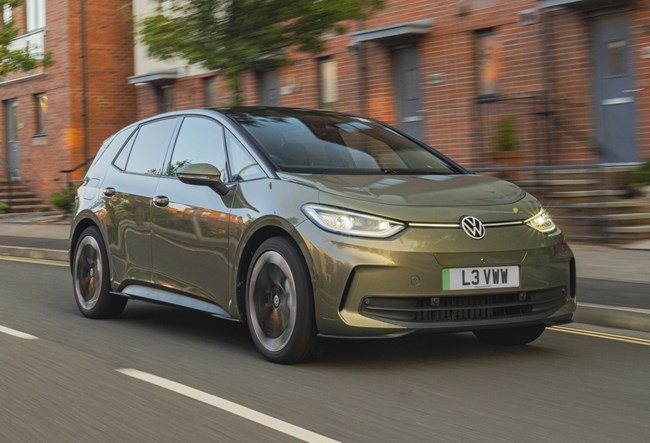We use cookies to ensure that we give you the best experience on our website. If you continue without changing your settings, we will assume that you are happy to receive all cookies on the Business Car website. However, if you would like to, you can change your cookies at any time

The start point for the best source of fleet information |
Handle driver EV adoption carefully, fleets warned
Date: 09 January 2024 | Author: Sean Keywood

Businesses' sustainability goals could be at risk if they do not handle EV adoption carefully, according to Volkswagen Financial Services (VWFS) Fleet.
It said that, despite strong current rates of EV adoption from the fleet market, employers needed to be wary of introducing EV-only policies before drivers were fully on-board.
It said that many drivers were still unsure about the technology, and had concerns about range and charging anxiety.
VWFS Fleet product manager for electric vehicles David Watts said that although the transition to EVs was a future inevitability, for many fleets it was still a work in progress.
He said: "If employers push EVs too quickly, without a clear and effective driver adoption strategy and policies in place it can have a number of unintended adverse sustainability consequences.
"Of course, the intention behind switching to an EV-only car policy is well-meaning. However, there will be drivers who don't want an EV or who might feel it's too difficult to live with. And if employees feel pushed into having an EV before they're ready, and there's a cash allowance alternative in place, there's a chance they'll opt out of the EV scheme and choose this instead.
"This is obviously concerning, as employers have less control over the vehicles employees choose under a cash allowance scheme, and the average vehicle selected will typically be significantly older and more polluting than those offered under company car schemes. A lot of that is down to cost."
What this means, according to Watts, is that while an EV-only car scheme might look great on paper looks great for reducing a business's Scope 1 (direct) emissions, employers are actually likely to see an increase in Scope 2 and 3 (indirect) emissions instead.
He said: "The net result will actually likely see businesses worse off from a sustainability perspective than if they'd allowed people to access an ICE through the company car scheme in the first place."
Watts argued that instead of pushing for an EV-only company car policy at this stage, there were a number of alternative strategies employers could adapt to achieve a more effective emissions reduction across the board.
He said: "Importantly, resolving this issue isn't just about removing the cash allowance benefit, as this can have a number of adverse effects on employee engagement.
"Instead, employers should look at how they can add an element of control to the vehicles they allow to be driven for business purposes. For example, this may include tightening up the criteria of vehicles that employees can claim mileage on by introducing a maximum age and maximum emissions.
"Ultimately, though, getting EV adoption right is all about driver engagement. Employers need to be proactive about this by gathering feedback from employees, conducting surveys and educating drivers on EVs and the reality of living with them. They also need to openly communicate the benefits of EVs and take the time to carefully dispel the myths surrounding them.
"Once you have driver buy-in, you can begin to increase EV uptake through company car schemes, without risking an increase in the uptake of cash allowance schemes."











